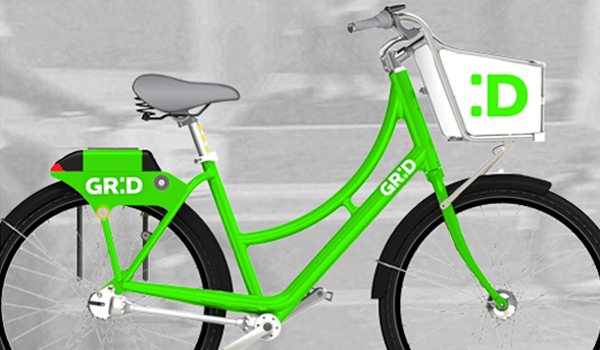The Grid Bike Share program boasted a successful first quarter since the launch of the program in November.
The program has garnered 2,250 members since the start and that number is growing.
Bike share members have cumulatively racked up 11,000 trips totaling 14,075 miles in the first quarter of the program, according to the Phoenix Street Transportation Department.
It is also estimated that the system has helped offset 11,700 pounds of carbon. Users also burned a combine total of 530,100 calories.
Grid Bike Share started with 100 bikes at 27 locations. Due to the success, there are plans in place for the program to expand. The system will increase to 500 bikes and 50 stations in Phoenix alone.
In the coming months, bike share enthusiasts will notice similar bike share systems starting in Mesa and Tempe. These locations will be more regionalized but Grid Bike Share will still be the company to provide users with the bikes and hubs.
Once the share expands to Mesa and Tempe, it is estimated 1,000 bikes will be at 100 bike stations across the three participating cities.
The system is simple to operate. Bikes are available to users 24/7. Users reserve a bike using the free mobile app, Social Bicycles. From there, riders can unlock the bike at the station with the keypad located on the back of the bike.
Rides vary in pricing. Users can select from a $5 per hour plan. For more avid users, block plans are available for $30 per month or $79 per year. Students can use the system for $59 each year. The block plans do limit to 60 minutes free per day.
Users must be at least 18 years old with a credit or debit card to check out bikes while riders need to be at least 16 years old.
If users want to stop, they can press, “HOLD” and lock the bike. Once they are done with the bike, they can lock the bike at any of the station hubs or at any bike rack for an additional fee of $2. Users will be charged $20 if the bike is locked outside of the system area.
Bike shares initially started popping up in Europe in the mid ’70s. The French city La Rochelle is credited with the first successful program, Yellow Bikes, as it is still in place today. Yellow Bikes is free for the first two hours, and then members start to incur charges.
Bike share programs are a growing trend in the U.S. following a spike in Europe.
New York City is home to the largest bike share in the U.S. with 1000s of bikes and 100s of stations. Cities such as Los Angeles, Portland, Nashville, and many more have begun to implement the bike sharing system as well.




